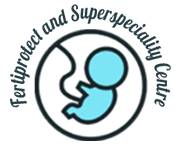A healthy diet plays a crucial role in the well-being of individuals undergoing dialysis. Since the kidneys are unable to filter waste and excess fluids effectively, dialysis helps remove these toxins. However, diet becomes a key part of treatment to maintain balance in the body. Eating the right foods in the right amounts helps control waste buildup, prevents complications, and supports overall health.
If you or your loved one is on dialysis, following a kidney-friendly diet is essential. In this guide, we’ll discuss what to eat, what to avoid, and how to plan meals effectively. For personalised diet advice and kidney care, consulting a Best nephrologist in Pune is highly recommended.
Why Diet Matters During Dialysis
Dialysis removes harmful toxins, but it can also remove some nutrients your body needs. A proper diet helps:
✅ Maintain fluid balance
✅ Control potassium, sodium, and phosphorus levels
✅ Reduce strain on the heart and kidneys
✅ Manage blood pressure & swelling
✅ Improve energy levels and immunity
Dietary needs differ depending on the type of dialysis – hemodialysis or peritoneal dialysis. A qualified Dialysis specialist in Pune can guide you with a customised plan based on your health condition.
Key Nutrients to Focus On
1. Protein – The Healing Nutrient
Dialysis patients need more high-quality protein because treatment removes protein waste products.
Recommended Sources:
✔ Eggs
✔ Chicken & fish
✔ Lean meat
✔ Paneer, tofu (in moderation)
Avoid red and processed meat as they increase inflammation and sodium intake.
2. Potassium – Maintain a Safe Balance
High potassium can be dangerous and may lead to heart problems. Limit foods high in potassium, unless advised otherwise.
High Potassium Foods to Avoid or Restrict:
❌ Bananas, oranges, coconut water
❌ Potatoes, tomatoes, spinach
❌ Dry fruits, avocados
Safer Low Potassium Options:
✔ Apples, pears, grapes
✔ Cabbage, cauliflower, cucumber
✔ Pineapple, papaya
3. Sodium – Reduce to Protect the Heart
Too much salt causes high blood pressure and fluid retention, making kidneys work harder.
Tips to Limit Sodium:
• Avoid packaged, instant, and processed foods
• Skip pickles, papads, chips, and restaurant food frequently
• Use natural herbs and lemon for flavour instead of salt
4. Phosphorus – Keep Bones Strong
High phosphorus weakens bones and causes calcium loss. Dialysis patients need to control phosphorus intake.
Foods to Avoid:
❌ Chocolates, nuts, seeds
❌ Cola drinks, cheese, whole grains in excess
Foods Safer in Moderation:
✔ Rice, chapati
✔ Dalia, oats
✔ Milk (restricted as advised)
Your doctor may recommend phosphate binders to help balance levels.
5. Fluid Intake – Consume Wisely
Your body may not be able to remove fluid efficiently, leading to swelling, breathing issues, and heart strain.
Smart Fluid Control Tips:
• Limit soups, juices, ice creams
• Track fluid intake daily
• Sip small amounts instead of drinking at once
• Chewing gum or sucking on ice cubes can reduce thirst
Foods Dialysis Patients Should Include
✅ Fresh home-cooked meals
✅ Low-sodium and low-spice dishes
✅ Healthy fats like olive oil
✅ Seasonal fruits low in potassium
✅ White bread, rice, pasta in moderation
✅ Egg whites, lean protein sources
Foods to Strictly Avoid
❌ Processed and canned food
❌ Salted snacks, fast foods
❌ High-potassium fruits & vegetables (unless advised)
❌ Excess milk products and nuts
❌ Aerated drinks and artificial juices
❌ Alcohol
Sample One-Day Meal Plan for Dialysis Patients
| Time | Meal |
| Morning | Warm water + apple |
| Breakfast | Vegetable upma + 1 egg white |
| Lunch | 2 chapatis + cabbage sabzi + rice + grilled chicken/fish |
| Evening | Tea (without sugar) + murmura chaat |
| Dinner | Dal (restricted) + lauki sabzi + paneer bhurji |
(Portions must be personalised by a kidney dietitian)
Final Thoughts
Dialysis patients require a carefully planned diet to maintain their health and quality of life. The right nutrition helps manage symptoms, boosts strength, and prevents complications. Each person’s diet needs vary based on their dialysis type, lifestyle, age, and medical condition. That’s why regular follow-ups with a kidney specialist are essential.
If you need expert kidney care, guidance on diet, and long-term disease management, consulting Dr. Sandeep Morkhandikar, a Best nephrologist in Pune can help you make the right choices.
A skilled Dialysis specialist in Pune will guide you with personalised nutrition, fluid management, and lifestyle tips to stay healthier during dialysis.


 Select an element to maximize. Press ESC to cancel.
Select an element to maximize. Press ESC to cancel.